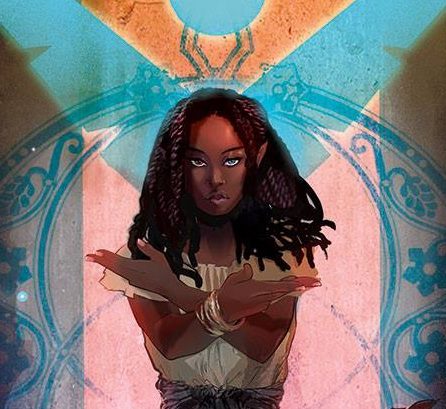It’s been two years since mega comic-book convention WonderCon packed up and headed south to Anaheim. And this year, the Alternative Press Expo (APE) returns to San Jose, leaving local comic book lovers without a simple BART ride over to their favorite annual gathering. What’s a comic lover to do, you ask?
To start, one can spend two days celebrating the brilliant creativity of comic book artists at the first annual Black Comix Art Festival (BCAF). The festival, a program sponsored by the Northern California Martin Luther King, Jr. Community Foundation, runs Jan. 18-19.
“Our overarching goal, our mission, is to celebrate African Americans in the comic arts and popular visual culture,” says Aaron Grizzell, event co-founder and executive director of the Northern California MLK Community Foundation. “Every community who lives in this area, who lives in this state, should be able to see themselves within the culture in which they participate. You ought to be able to see a superhero or see someone you can dream about, that you want to be.”
Grizzell and co-founder and comic book artist John Jennings—who also co-founded the annual Black Comic Book Festival in Harlem—hope to provide just that. In the spirit of accessibility, the event is free; what’s more, both BART and MUNI will provide free transportation to attendees around the bay.
“We want people of all ages, particularly the young people, when they’re just sort of formulating what their community looks like, to see within this space positive visions of themselves so they can create and be inspired,” says Grizzell.

The theme for the inaugural BCAF is “March to Freedom,” commemorating the 50th anniversary of the historic civil-rights march from Selma to Montgomery and the passing of the 1965 Voting Rights Act.
“We also see BCAF as being, for some of us who are a little more active in the space, a space where we can open up various conversations that might be a little more difficult than in ‘real life,’” says Grizzell. “Artists in the comic space can create certain types of messages, and because it’s in an animation space, it might be able to open up new conversations.”
Those conversations include the representation of women and people of color in the traditionally white, male-dominated culture of comic books, but also the current climate of race, gender and class issues around the country. The organizing committee kept conscious of gender representation with vendors and presenters, and will host a strong presence of celebrated black women artists. Among them are Genius creator Afua Richardson, who has an upcoming digital Wonder Woman project in the works with DC Comics, and Concrete Park co-creator Erika Alexander. Actress Amandla Stenberg (known to many for her portrayal of Rue in the Hunger Games films) will be in attendance with her latest comic project, as well.
The event will also host panel discussions and presentations specific to the African-American comic world.
“We don’t put any restrictions on the subject matter, only that we need to make sure it’s age-appropriate in how we discuss it,” says Grizzell. “We suspect this is going to generate a lot of conversations specific to what is going on in our social milieu.”
The panel discussions include a wide array of topics, from self-publishing to media critic Frances Gateward's exploration of African-American comics’ impact on pop culture at large. Writer and culture critic Shawn Taylor will present on “hip-hop, comics and popular culture.” A presentation on police brutality is on the schedule, with K Chronicles creator Keith Knight moderating.
And let’s not forget the talented lineup of artists presenting their work. In addition to the panelists, other vendors include Blue Marvel's Kevin Grevioux, Black Dynamite creator LeSean Thomas, and Miranda Mercury and Voltron writer Brandon Thomas, among many others.
“We’re ecstatic about where we’ve been able to set this up and how it’s been set up,” says Grizzell. “As the head of the foundation, our joy comes from when we see something coming together and how it can have a real impact on the community—not just the target community of African Americans, but the community as a whole—we’re really happy about that.”